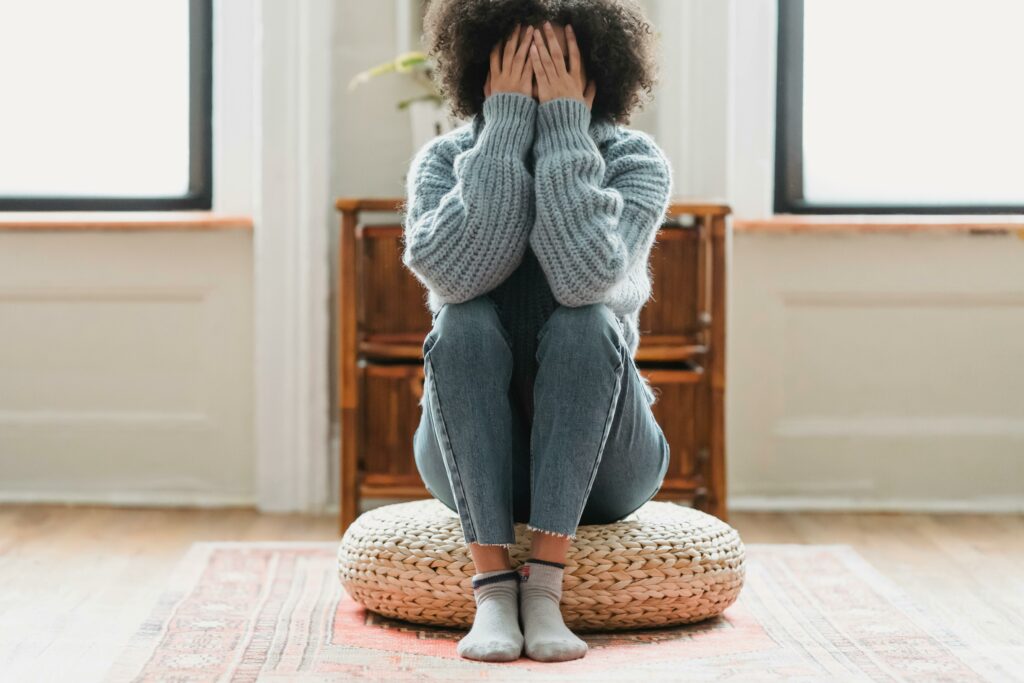Latest results have shown that 1 in 3 Australians feel lonely at any given time. Furthermore, 1 in 4 Australians experience persistent loneliness. Those numbers are staggering.
Suffice to say, loneliness is at epidemic levels in Australia with no signs of it getting better anytime soon. So, now is the time to sit down and address what exactly loneliness is from the acute to the more general, and integrate tips to overcome it.
What is loneliness?
Loneliness is a psychological state characterised by a distressing experience occurring when someone’s perception of their social relationships is lower in quantity and quality than desired.
It is not the same as being alone. Being alone is the physical state of not being with another individual, or animal.
RELATED: What is ambiguous loss? An expert breaks down the agonising limbo
People can feel lonely in a relationship, or when they are surrounded by other people. It is when the social contact does not fill your cup, or it is not meaningful to you. Feeling this way sometimes can be a very normal and human experience. We also know that it is healthy to spend some time alone, and it can be very enjoyable and helpful.

Unsplash: Helmuts Rudzitis
If feeling lonely is happening frequently however, there can be serious consequences to our mental and physical health, and our overall well-being. Studies show that chronic loneliness can be a risk of early death, cardiovascular illness and injury, depression, high cholesterol, emotional distress, and chronic illness. It can impact the quality and quantity of our sleep, too.
What causes loneliness?
There can be many reasons as to why loneliness presents itself. The most common causes of loneliness include moving to a new city or country, starting a new job, leaving a relationship, having friends in different life stages, living alone, leaving university, having many casual acquaintances but no close friends, or starting a family and having your own lifestyle change.
Recent research also tells us that people who are experiencing financial strain and who might be working multiple jobs are feeling lonelier, due to not having enough time to manage and maintain their social relationships.

Unsplash: Abenexer Shewaga
There is also self-stigma associated with loneliness, with people at times feeling too self-conscious to share how they are feeling, or not putting themselves out there in order to make new friends.
If you are lonely, you might experience the following:
- Physical symptoms like sleep issues, having muscular aches and pains, feeling fatigued, and headaches
- Mental health symptoms like anxiety, panic, paranoia and mental health diagnoses either triggered or exacerbated by the loneliness
- Low motivation
- Emotional symptoms like sadness, grief, jealousy and resentment
- Losing your appetite or emotional eating
- Thinking about suicide
- Self-medicating with substances, and drinking more alcohol than you usually would or engaging in drug use
While loneliness can be difficult and uncomfortable to feel, it can also be a helpful signal
Having a few close friends is enough to ward off loneliness and reduce the negative health consequences associated with this state of mind. Research suggests that the experience of actual face-to-face contact with friends helps boost people’s sense of well-being. It’s important to be proactive when we feel lonely. While we may not be able to control how lonely we feel at all times, we can try to shift this state.
How to overcome loneliness, and make connections
- Deepen an existing relationship. Building new connections is important, but improving your existing relationships can also be a great way to combat loneliness. Try calling a friend or family member you have spoken to in a while. Remember that research tells us it can take anywhere from 40 and 60 hours to move from an acquaintance to a casual friendship, from 80 to 100 hours to call someone a friend, and over 200 hours of togetherness before making a best friend.
- Put yourself out there. Lonely people often expect rejection. Put yourself out there, you can expect to get a few ‘no’s’ but eventually there will be ‘yes’s’. Keep asking.
- Connect to community. Volunteering and engaging in social events like park runs or community planting days present great opportunities to meet people and cultivate new friendships and social interactions with people who share interests common to you.
- Hope for the best. Lonely people often expect rejection, so instead, try focusing on positive thoughts and attitudes in your social relationships.
- Understand what triggers your loneliness. There are physical and mental repercussions to loneliness. Make a plan for particular times of the year or week that you feel most lonely, and plan accordingly.
- Join a social group. Explore things like a Meetup group where people from your area with similar interests can get together. You might also consider joining a book club, a sport group, or taking an exercise class.
- Talk to someone you can trust. Reaching out to someone in your life to talk about what you are feeling is important. This can be an old friend or a family member. You might also benefit from talking it out with a psychologist if you are finding it difficult to manage your thoughts and emotions.
It’s important to seek help if you’re feeling overwhelmed, anxious or noticing any other effects on your own mental health or that of the people around you. You can phone Lifeline to speak to a Crisis Supporter on 13 11 14, text 0477 131 114 for support, or chat to Lifeline online at lifeline.org.au – all services are available 24 hours a day, 7 days a week.
Carly Dober owns Enriching Lives Psychology and is the director at the Australian Association of Psychologists Incorporated and Body Safety Australia. She works alongside Headspace App’s global team and professionally covers topics including but not limited to; mental health, depression, anxiety, stress and burnout, anger management, phobias, relationship difficulties, sexuality and sexual development.










